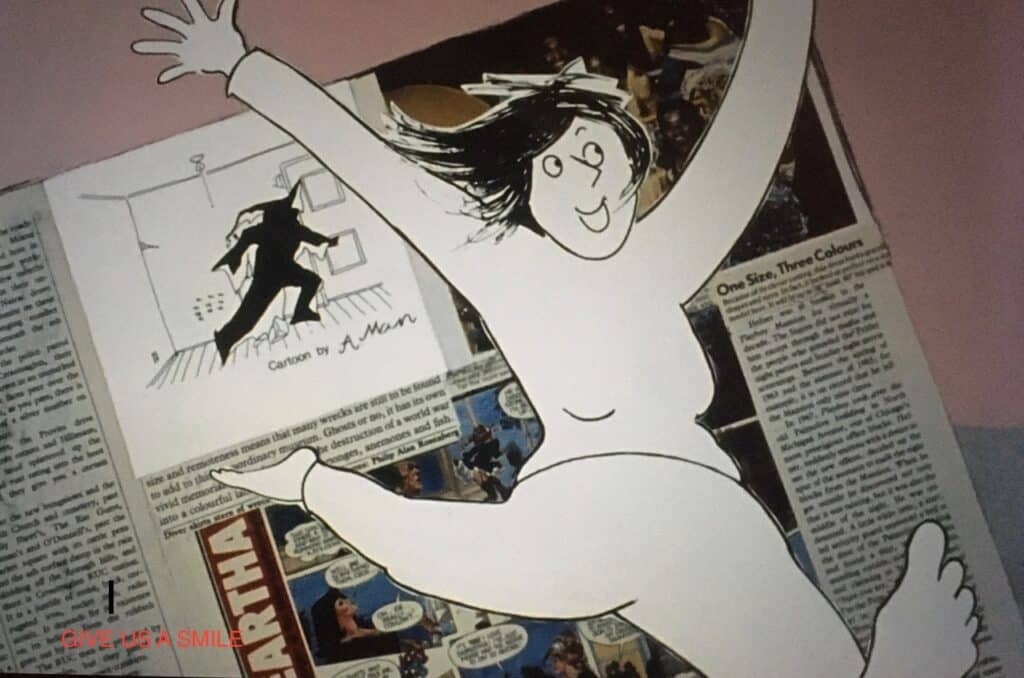La Gran Fabula del Capital / The Great Fable of Capital
Dec 1, 2023 - Apr 14, 2024
Centro de Cultura Contemporánea Condeduque
Madrid

(c) Leeds Animation Workshop, Give Us a Smile, 1983
Translated from Spanish
The phrase, sometimes attributed to Fredric Jameson and sometimes to Slavoj Žižek, is famous, according to which it is easier to imagine the end of the world than the end of capitalism. Naturally it is a slogan and, like all slogans, it is fueled in equal parts by brilliance and lack of honesty. Although it could also serve to understand what messages certain impossibilities, certain imaginaries, emit.
Because it is false that the apocalypse is so representable and that only its most celebratory snapshots of the capitalist apotheosis reach us. What does exist is an artistic, literary, philosophical and cinematographic tradition that takes the end of the world as a theme, and there is also a story, in some way codified, that from the previous fields delves into utopia, dystopia or uchronia.
Perhaps some thinkers visit the museum infrequently, or do so to verify their own postulates. During the last fifty years, a large number of artists have appeared who, in addition to fantasizing about the decline of capitalism, understood something more necessary: that the only language from which to confront normative languages, financial terminologies and mercantilist nomenclatures It was a speech that invoked dissidence and vulnerability, a dialect that opposed the volatile and unappropriated power of poetry.
It was precisely an extraordinary poet, Adrienne Rich, who wrote some verses that may well serve as a guide for this exhibition. They say like this: “the knowledge of the oppressor / is the language of the oppressor / and yet I need it to speak to you.”
The great fable of capital brings together seven artists and groups (Joseph Beuys, Barbara Hammer, Alexander Kluge, Esther García Llovet, Max de Esteban, Marco A. Castillo, Leeds Animation Workshop) whose works are part of that ‘and yet’ to which Rich alludes, that is, they diagnose or refute capitalist realism – according to the term coined by Mark Fisher – from their own allegorical sources, rejecting its aspiration to be THE ONLY VOICE in describing, naming and typifying the world.
Each of these artists is based on the conviction that reality does not exist beyond those narrative, ideological and social consensuses that enunciate it, and that a collective pulse against their formulations cannot do without humor, paradox or tautology.
Finally, it should be noted that this exhibition includes historical works, pieces that are presented for the first time in a museographic setting, and specifically produced projects.